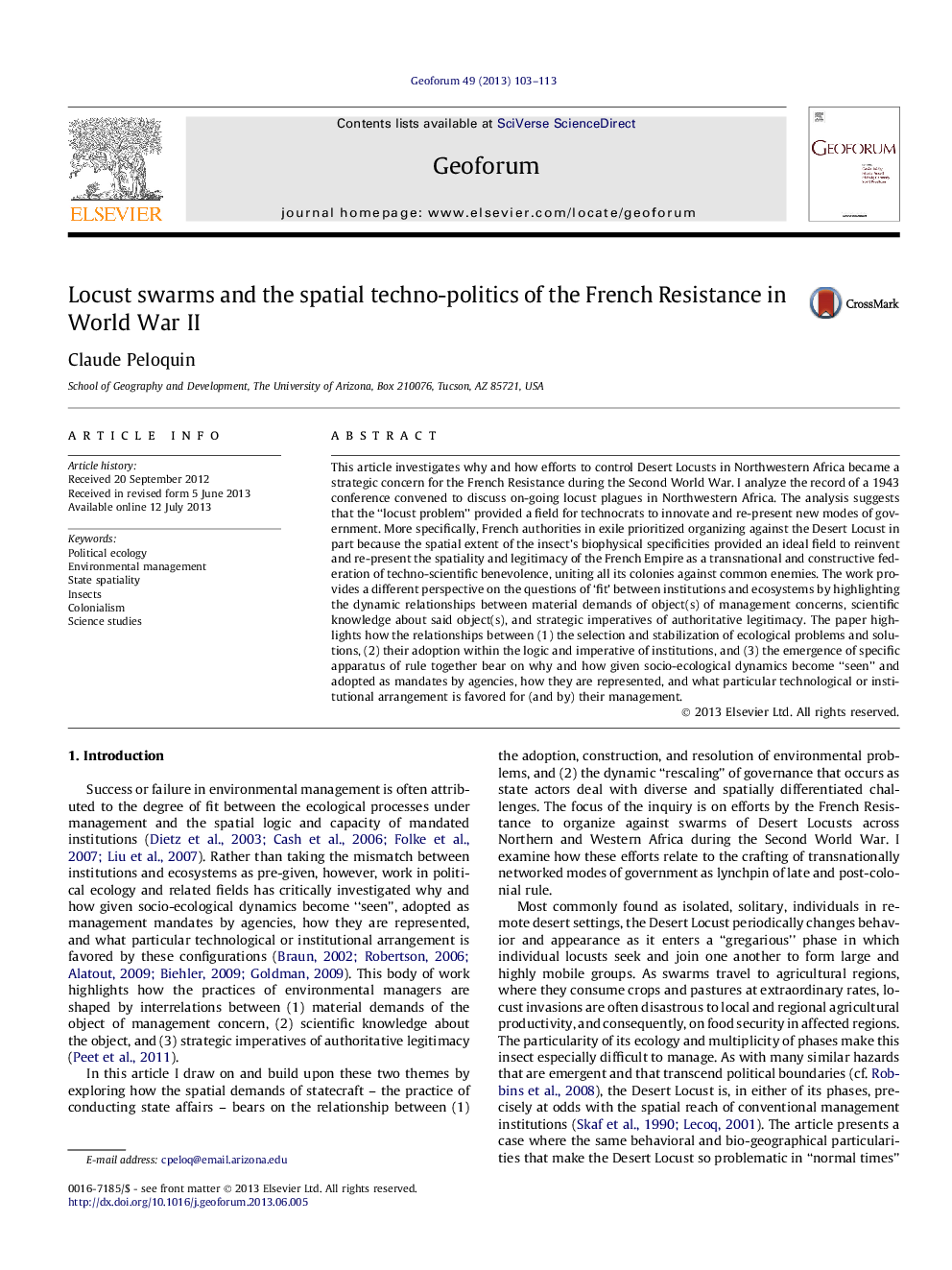| کد مقاله | کد نشریه | سال انتشار | مقاله انگلیسی | نسخه تمام متن |
|---|---|---|---|---|
| 5074212 | 1477140 | 2013 | 11 صفحه PDF | دانلود رایگان |
- The French colonial Empire was in crisis during WWII.
- Efforts to control Desert Locusts helped resolve this crisis.
- Responses to locust invasions enabled new modes of government.
- Resulting field allowed transnational federation of techno-scientific benevolence.
- Fit or mismatch between institutions and ecological dynamics is unstable, contingent.
This article investigates why and how efforts to control Desert Locusts in Northwestern Africa became a strategic concern for the French Resistance during the Second World War. I analyze the record of a 1943 conference convened to discuss on-going locust plagues in Northwestern Africa. The analysis suggests that the “locust problem” provided a field for technocrats to innovate and re-present new modes of government. More specifically, French authorities in exile prioritized organizing against the Desert Locust in part because the spatial extent of the insect's biophysical specificities provided an ideal field to reinvent and re-present the spatiality and legitimacy of the French Empire as a transnational and constructive federation of techno-scientific benevolence, uniting all its colonies against common enemies. The work provides a different perspective on the questions of 'fit' between institutions and ecosystems by highlighting the dynamic relationships between material demands of object(s) of management concerns, scientific knowledge about said object(s), and strategic imperatives of authoritative legitimacy. The paper highlights how the relationships between (1) the selection and stabilization of ecological problems and solutions, (2) their adoption within the logic and imperative of institutions, and (3) the emergence of specific apparatus of rule together bear on why and how given socio-ecological dynamics become “seen” and adopted as mandates by agencies, how they are represented, and what particular technological or institutional arrangement is favored for (and by) their management.
Journal: Geoforum - Volume 49, October 2013, Pages 103-113
